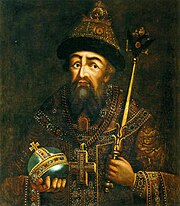1573 Polish–Lithuanian royal election
 | |||||||||||||||||||||||
| |||||||||||||||||||||||
Election of the Grand Duke of Lithuania | |||||||||||||||||||||||
|---|---|---|---|---|---|---|---|---|---|---|---|---|---|---|---|---|---|---|---|---|---|---|---|
| Turnout | 40,000 electors | ||||||||||||||||||||||
| |||||||||||||||||||||||
| |||||||||||||||||||||||
The free election of 1573 was the first ever royal election to be held in the Polish–Lithuanian Commonwealth. It gathered approximately 40,000 szlachta (Polish nobility) voters (the highest turnout ever) who elected Henry of Valois king.
The free election was introduced due to the childless death of the last
Henry I of Poland ruled only for a single year after which he returned to his native
Background
The death of King
Before the death of Zygmunt August, Greater Poland Catholic nobility, gathered in
Convocation Sejm

On January 6, 1573, the Convocation Sejm was summoned to Warsaw. Members of nobility argued that it was under extensive influence of the Senate, so to prevent this, no Marshal was elected. Instead, the work of the Sejm was overseen by deputies from different provinces. After lengthy discussion, it was agreed that all members of the nobility would be eligible to elect the monarch, provided that they personally come to Warsaw.
The decision to choose Warsaw was seen as a success of the Catholic camp, as unlike Lesser Poland, Mazovia was dominated by Roman Catholic nobility. Lithuanians did not appear at the Convocation Sejm, sending only their observers. Once again, they demanded the return of Ruthenian provinces, but did not decide to void the Union of Lublin, due to threat from Ivan the Terrible.
Candidates
Initially,
Another candidate was the Tsar of Muscovy, Ivan the Terrible, supported mostly by the Lithuanians, who hoped that his election would end the Muscovite–Lithuanian Wars. Ivan himself initially did not express any interest in the Polish-Lithuanian throne, neither for himself, nor for his son. Later on, however, he presented a list of unrealistic demands, such as incorporation of vast territories of the Commonwealth, and creation of a Polish-Lithuanian-Muscovite state, with a hereditary monarch. Since he did not send any envoys to Warsaw, his candidacy failed.
The election
The Election Sejm convened on April 5, 1573, in the village of Kamien near Warsaw. Due to prolonged winter, nobility from distant provinces was largely absent, while Mazovians appeared in great numbers. Sejm deliberated in a senatorial tent, around which gathered szlachta, divided into provinces (
In the course of time, the candidature of Henri of Valois, promoted by Jean de Montluc, became very popular. A brilliant, three hour speech of de Montluc, filled with promises and assurances, was enthusiastically welcomed by the szlachta. The speech was later printed in 1,500 copies, and distributed among those who came to Kamien. Henri was supported by Anna Jagiellon, and the Lithuanians, who hoped for a revision of the Union of Lublin.
The Election Sejm dragged for a long time, due to several issues which were discussed. In early May 1573, Mazovian nobility, which grew impatient, demanded that the Primate of Poland begin the election. On May 3, the vote began, and by May 9 it turned out that French candidate won support of 22 voivodeships. On May 10, opponents of Henri, led by Jan Firlej, left Kamien and headed to Grochow. To prevent a double election, a delegation under Piotr Zborowski was sent there. Firlej and his men agreed to the election of the Frenchman only after signing the so-called Henrician Articles.
On May 11, 1573, Primate Uchanski nominated Henri of Valois to the post of King of Poland and Grand Duke of Lithuania. On May 16, French envoys accepted the Henrician Articles and other demands, and on the same day Crown Marshal Jan Firlej named Henry King of Poland. Valois was crowned in Kraków on February 21, 1574.
See also
- History of Poland in the Early Modern era (1569–1795)
- Royal elections in Poland
- Golden Liberty
- Henrician Articles
Sources
- S. Grzybowski, Dzieje Polski i Litwy (1506–1648), pod red. S. Grodziskiego, w: Wielka Historia Polski, Kraków 2003
- U. Augustyniak, Historia Polski 1572–1795, Warszawa 2008
- S. Cynarski, Zygmunt August, Wrocław 2004
- Z. Wójcik, Wiek XVI-XVII, Warszawa 1991
- M. Markiewicz, Historia Polski 1494–1795, Kraków 2002




